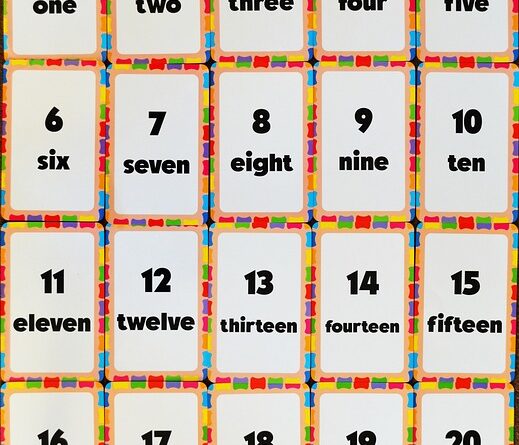
Hello there! In this article, we’ll be discussing how you can learn to speak Spanish. We’ll be providing you with some helpful tutorials that will guide you on your journey of mastering the language. You’ll discover various techniques and strategies to improve your Spanish-speaking skills. So, if you’re ready, let’s dive right into the world of learning Spanish!

Table of Contents
Learn How to Speak Spanish
Are you interested in learning a new language? Look no further than Spanish! With over 460 million speakers worldwide, Spanish is one of the most widely spoken languages in the world. Whether you want to enhance your communication skills, expand your cultural knowledge, or improve your career prospects, learning Spanish can open up a world of opportunities for you. In this article, we will explore the benefits of learning Spanish, reasons to start learning, and practical tips to get you started on your Spanish language journey.
Benefits of Learning Spanish
Enhancing Communication Skills
Learning Spanish can greatly enhance your communication skills. As you become proficient in Spanish, you will be able to have conversations with native Spanish speakers and express yourself more effectively. Being able to communicate in Spanish opens up a whole new world of relationships, connections, and experiences.
Expanding Cultural Knowledge
Learning Spanish allows you to immerse yourself in the rich and diverse cultures of Spanish-speaking countries. From the vibrant festivals in Mexico to the flamenco dances in Spain, Spanish culture is filled with history, art, music, and culinary delights. By learning the language, you gain a deeper understanding and appreciation of these cultures, allowing you to connect with people from different backgrounds.
Improving Career Prospects
In today’s globalized world, being bilingual is a highly valued skill. Learning Spanish can significantly improve your career prospects. Many companies are seeking employees who can communicate with Spanish-speaking clients and expand their businesses into Spanish-speaking markets. By adding Spanish to your skillset, you can stand out from the competition and increase your chances of landing exciting job opportunities.
Reasons to Learn Spanish
Traveling to Spanish-speaking Countries
If you love traveling, learning Spanish is a must! Spanish is spoken in numerous countries, including Spain, Mexico, Colombia, Argentina, and many more. When you can speak Spanish, you can immerse yourself in the local culture, communicate with locals, and navigate your way through different cities and towns. Whether you’re exploring the ancient ruins of Machu Picchu in Peru or relaxing on the beautiful beaches of Costa Rica, speaking Spanish will enrich your travel experiences.
Connecting with Spanish-speaking Friends and Family
Learning Spanish allows you to connect more deeply with Spanish-speaking friends and family members. Being able to communicate with them in their native language strengthens your relationships and creates a stronger sense of belonging. Additionally, being able to converse with their friends and extended family members who may not speak English will enhance your social interactions and broaden your network.
Studying Spanish Literature and Art
Spanish is the language of great literary works and renowned artists. By learning Spanish, you have the opportunity to delve into an array of literary masterpieces by authors such as Gabriel García Márquez, Octavio Paz, and Isabel Allende. You can appreciate the nuances of their writing style and experience their stories in their original language. Additionally, exploring Spanish art, from the works of Frida Kahlo to Pablo Picasso, allows you to immerse yourself in the cultural expressions of Spanish-speaking artists.
Getting Started with Spanish
Now that you’re excited about learning Spanish, let’s dive into how you can get started. Here are some essential steps to begin your journey to speaking Spanish fluently.
Understanding Basic Pronunciation
Spanish pronunciation is relatively straightforward compared to other languages. Start by learning the sounds of each letter and practice pronouncing words correctly. You can find online resources, such as pronunciation guides and audio clips, to help you perfect your pronunciation.
Learning Essential Vocabulary
Building a solid foundation of vocabulary is crucial when learning any language, and Spanish is no exception. Begin by learning common words and phrases that you are likely to use in everyday conversations. Start with simple greetings, numbers, and basic vocabulary related to food, travel, and daily activities. Flashcards and language learning apps can be useful tools for expanding your vocabulary.
Mastering Fundamental Grammar Rules
Understanding Spanish grammar rules is essential for constructing proper sentences. Start by learning the basics, such as verb conjugations, noun and adjective agreements, and sentence structure. Familiarize yourself with how different parts of speech work together to form coherent sentences. Practice exercises and online grammar resources can help you develop a solid foundation in Spanish grammar.
Building Conversational Skills
Once you have grasped the basics of Spanish, it’s time to focus on building your conversational skills. Here are some tips to help you improve your speaking and listening abilities.
Practicing Everyday Conversations
Engage in conversations with native Spanish speakers or fellow language learners as frequently as possible. Practice asking and answering common questions, discussing everyday topics, and expressing your thoughts and opinions in Spanish. Immersion experiences, such as living or studying abroad in a Spanish-speaking country, can provide invaluable opportunities to practice conversational skills.
Using Expressions and Idioms
To sound more natural and culturally aware, familiarize yourself with Spanish expressions and idioms. Using these phrases in conversations adds flavor to your language skills and helps you connect with Spanish speakers on a deeper level. You can find helpful resources online or in books dedicated to teaching idiomatic expressions.
Developing Listening and Speaking Abilities
Listening to Spanish podcasts, radio shows, or news broadcasts can significantly improve your listening comprehension skills. Pay attention to the pronunciation, intonation, and vocabulary used by native speakers. Additionally, dedicated speaking practice, such as participating in language exchange programs or attending conversational language classes, can refine your speaking abilities and boost your confidence.
Enhancing Reading and Writing Skills
To become a well-rounded Spanish speaker, it’s important to focus on improving your reading and writing skills. Here are some strategies to help you excel in these areas.
Reading Spanish Texts
Start with simple texts, such as children’s books or short articles, and gradually work your way up to more complex materials. Reading Spanish texts exposes you to new vocabulary, grammatical structures, and cultural references. Make use of online dictionaries or language learning apps to aid your reading comprehension.
Writing Essays and Stories in Spanish
Practicing writing in Spanish is an effective way to strengthen your grammar and vocabulary skills. Start by writing simple sentences or short paragraphs and gradually progress to more complex pieces. You can practice by journaling, writing essays, or even fictional stories in Spanish. Don’t be afraid to make mistakes; it’s all part of the learning process.
Expanding Vocabulary through Reading
Reading is an excellent way to expand your vocabulary. As you encounter new words while reading, make note of them and look up their meanings. Create flashcards or use vocabulary-building apps to help reinforce your newly acquired words. Remember, the more you read, the more words you’ll be exposed to, enhancing your overall language proficiency.
Exploring Spanish Culture and Traditions
Understanding the culture and traditions of Spanish-speaking countries is an integral part of learning the language. Here are some ways to dive into Spanish culture and expand your cultural knowledge.
Understanding Hispanic Customs
Learning about customs and traditions in Spanish-speaking countries allows you to better understand and appreciate the cultural nuances of the language. From the siesta in Spain to the Day of the Dead celebrations in Mexico, each country has its own unique customs. Engage in cultural activities, attend cultural events, and interact with native Spanish speakers to gain firsthand cultural experiences.
Celebrating Festivals and Holidays
Participating in Spanish festivals and holidays immerses you in the vibrant spirit of the culture. Join in the excitement of La Tomatina in Spain, experience the lively atmosphere of Carnival in South America, or celebrate the colorful Day of the Dead in Mexico. By actively engaging in these celebrations, you deepen your understanding of the culture and develop a deeper connection with Spanish-speaking communities.
Learning about Famous Spanish Influences
Spanish-speaking countries have contributed immensely to literature, art, music, and film. Take the opportunity to explore these influential figures and works. Read novels by influential Spanish authors, appreciate the works of famous Spanish painters, listen to influential Latin American musicians, and watch films from renowned Spanish-speaking directors. By doing so, you not only enhance your language skills but also gain a deeper appreciation for the contributions of Spanish-speaking countries to the world.
Improving Language Fluency
Now that you have developed a solid foundation in Spanish, it’s time to take your language skills to the next level and aim for fluency. Here are some strategies that can help you achieve this goal.
Practicing Language Immersion
Immersing yourself in a Spanish-speaking environment is an excellent way to enhance your language skills. If possible, spend time in a Spanish-speaking country or participate in language immersion programs. By surrounding yourself with native Spanish speakers, you will be forced to communicate in Spanish, accelerating your language learning process.
Taking part in Language Exchange Programs
Language exchange programs provide opportunities to practice speaking with native Spanish speakers while helping them learn your native language in return. These programs enable language learners to engage in conversations and gain cultural insights from native speakers. Use online platforms or join local language exchange events to find language partners.
Watching Spanish Movies and TV Shows
Improve your listening skills and expose yourself to authentic Spanish language use by watching movies and TV shows in Spanish. Start with subtitles in your native language, and gradually switch to Spanish subtitles or turn them off altogether as your comprehension improves. This immersive experience will expose you to different accents, vocabulary, and cultural references.
Using Online Language Resources
In today’s digital age, learning a language has become more accessible, thanks to an abundance of online resources. Here are some ways you can leverage online tools to enhance your Spanish learning journey.
Finding Online Spanish Courses
Online language courses provide structured lessons tailored to different proficiency levels. These courses often include interactive exercises, audio materials, and quizzes to reinforce your learning. Look for reputable platforms that offer comprehensive Spanish courses and allow you to track your progress.
Utilizing Language Learning Apps
Language learning apps, such as Duolingo, Babbel, or Rosetta Stone, are convenient tools for incorporating Spanish practice into your daily routine. These apps offer gamified lessons, vocabulary drills, and interactive exercises to make your learning experience engaging and enjoyable. Set aside regular time each day to practice on these apps to reinforce your language skills.
Joining Online Language Communities
Online language communities, such as forums or social media groups dedicated to language learning, provide valuable support and resources. By joining these communities, you can interact with fellow learners, ask questions, share resources, and even find language exchange partners. Engaging with a supportive community can motivate you on your language learning journey.
Overcoming Language Learning Challenges
Learning Spanish, like any new language, comes with its own set of challenges. Here are some common hurdles you may face and strategies to overcome them.
Handling Verb Conjugations
Spanish verb conjugations can be intimidating at first, but with practice, you’ll become more comfortable with them. Familiarize yourself with regular verb conjugations and common irregular verbs. Practice verb conjugations through exercises or writing and speaking activities to reinforce your understanding.
Dealing with Pronoun Usage
Spanish pronoun usage differs from English, and it takes time to understand the correct usage. Learn the different pronouns and when to use them in different contexts. Practice incorporating pronouns into your conversations and writing to become more comfortable with their usage.
Navigating Different Dialects
Spanish is spoken across several countries, each with its own dialect and regional variations. Understand that there will be differences in pronunciation, vocabulary, and even grammar rules. Exposure to different dialects through conversations, podcasts, and regional literature can help you navigate these variations and develop a greater appreciation for the richness of the Spanish language.
Conclusion
Congratulations! By embarking on the journey to learn Spanish, you are opening yourself up to a world of opportunities, whether that’s communicating with native speakers, traveling to Spanish-speaking countries, or expanding your cultural knowledge. While learning any language requires dedication and perseverance, the benefits of learning Spanish far outweigh the challenges. Start with the essentials, practice regularly, and embrace the language and culture to make your Spanish learning experience both fulfilling and enjoyable. Buena suerte (good luck) on your Spanish language journey!








